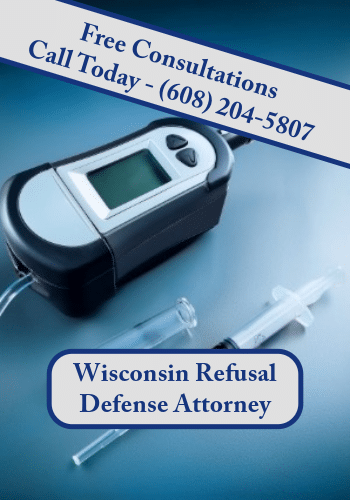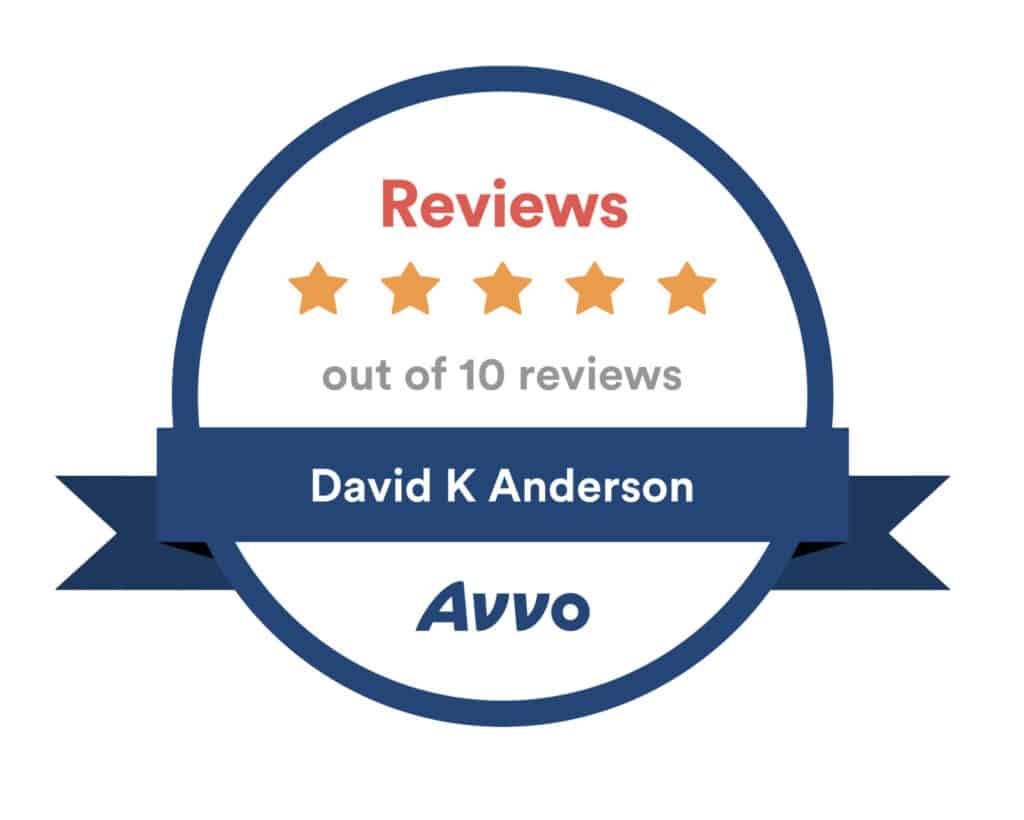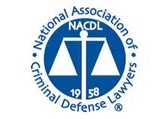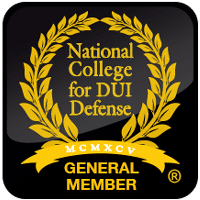Refusal Charge in Wisconsin
- Our Location
Madison, WI
- Free Consultations
(608) 204-5807
Madison, WI Refusal Attorneys
What Is Wisconsin’s Implied Consent Law?
In Wisconsin, by operating a motor vehicle, you automatically agree to chemical testing—breath, blood, or urine—if requested during an OWI (Operating While Intoxicated) investigation. This agreement is codified under the Implied Consent Law found in Wis. Stat. § 343.305.
Wisconsin Refusal Charge
However, you can refuse to take the test—but doing so is itself a separate offense. A Refusal charge triggers serious penalties and counts as a prior OWI for sentencing in future drunk driving cases. Understanding how this law works and the implications of a refusal is crucial for protecting your driving privileges and legal rights.
Refusal Charges Are Separate From OWI Charges
A Refusal charge is distinct from an OWI charge and brings its own set of penalties. It doesn’t replace the OWI—it adds to it.
Key penalties include:
• Driver’s license revocation: 12 to 36 months depending on prior OWIs or refusals.
• Ignition Interlock Device (IID): Required for the full length of the revocation period.
• AODA Assessment: Mandatory Alcohol and Other Drug Abuse evaluation.
• Occupational License Delay: 30 days (or more) before eligibility to apply.
A Refusal for a requested breath test will count as a prior offense—making a future OWI charge a 2nd or 3rd offense with harsher penalties. A refusal of a requested blood draw cannot be used to increase the penalties of an OWI.
Questions about a Refusal? We Can Help!
The 10-Day Deadline for Refusal Hearings in Wisconsin
If you’re accused of refusing a chemical test, you must act quickly. Wisconsin law gives you only 10 days from receiving your Notice of Intent to Revoke to request a refusal hearing. Failure to file this request results in an automatic finding of guilt.
Your notice will include:
• Instructions for how to file a hearing request
• Contact information for the appropriate court
• The timeline for responding
Missing this deadline results in automatic license revocation and all associated penalties—even if you weren’t ultimately convicted of OWI.
Immediate action is critical. Contacting an experienced refusal defense attorney as soon as possible can make the difference between keeping and losing your license.
Comparing a Refusal Conviction to an OWI Conviction
While both OWI and Refusal convictions are serious, they differ in key ways:

Subsequent offenses result in harsher revocation periods, longer IID requirements, and more restricted driving privileges for Refusal convictions.
Note: Refusals do not carry mandatory jail time, even if it’s your second or third offense—unlike OWI charges.
Defending Against Refusal Charges in Wisconsin
At DK Anderson, S.C., we examine every detail of your arrest, chemical test request, and law enforcement procedure to identify potential defenses, such as:
✔ Invalid or unlawful arrest – Was there probable cause for the traffic stop or OWI arrest?
✔ Improper Implied Consent Warnings – Were you correctly informed of the consequences of refusing?
✔ Ambiguity or confusion – Were your actions really a “refusal,” or were you unclear or physically unable to comply?
✔ Medical issues or disability – Did a legitimate medical condition impair your ability to comply with the test?
We will pursue every angle to have your refusal dismissed, reduced, or mitigated.
Facing a Refusal Charge in Madison, WI? Let DK Anderson, S.C. Help.
A refusal charge is time-sensitive and serious. Our experienced OWI defense attorneys at DK Anderson, S.C. will guide you through the 10-day hearing request, develop a defense strategy, and work to preserve your license and reputation.
We defend clients across Southern Wisconsin including in Dane, Green, Iowa, Rock, Jefferson, Columbia, and Sauk Counties.
📞 Call Now: (608) 204-5807
Frequently Asked Questions - Refusal Charges in Wisconsin
You automatically lose your license, and the refusal conviction becomes final. This is why you must act immediately.
Yes and no. If you are convicted of refusing a breath test and are later charged with OWI again, the refusal is counted as a prior offense. Refusals on blood tests are not counted as a prior offense.
Maybe. An Ignition Interlock Device is mandatory for all refusal convictions in Wisconsin. However, an experienced attorney maybe able to get the charge dismissed or negotiate a resolution that does not require an IID.
Absolutely. Refusal hearings involve legal standards that must be challenged effectively—an attorney improves your chances of success.
No. The penalties for refusal can be worse than a first OWI, especially due to longer revocation and mandatory IID. Furthermore, law enforcement will get a warrant for your blood if you do not consent.
Our Practice Areas
Drunk Driving
Whether you are charged with a first offense, or a fifth offense, our Wisconsin OWI attorneys can help.
Violent Crimes
A conviction for any one of Wisconsin's violent crimes will have significant consequences.
Drug Charges
Our Wisconsin Drug charge attorneys know the law and how to apply that law in the court room.
Domestic Violence
A conviction for a domestic violence charge in Wisconsin has additional consequences.
Property Crimes
Wisconsin property crimes include theft, forgery, and criminal damage to property.
Sex Offenses
Not much will change your life like a conviction for one of Wisconsin's sex offense charges.
Traffic Citations
Although less serious than a criminal charge, a traffic citation can effect your driver's license.






